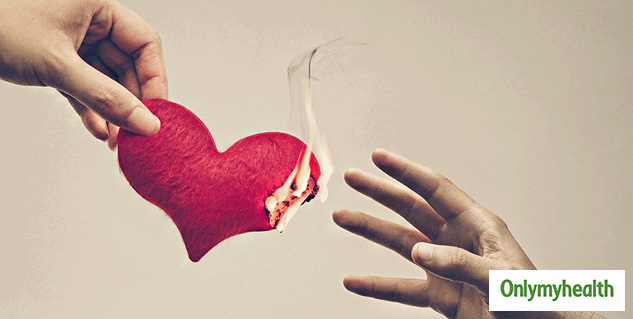
Stretching a rubber band too much would ultimately turn to it breaking off. Similarly stretching your limits in a relationship can lead to breakups. According to research, invading in the personal space of your partner or being over obsessive and sensitive in the relationship can have adverse effects on the mental health of both the partners involved. In severe cases, it can also lead to Relationship OCD (ROCD).
Relationship OCD (Relationship obsessive compulsion disorder) is also known as Relationship Substantiation. People with relationship obsessive disorder tend to always be in doubt about whether their partner is faithful, attracted and in love with them. It all starts with uncertainty which on much later stage leads to such overtly obsessive behaviour. According to scientists, people with this disorder are over impulsive, highly sensitive and can be hyperactive as well.

Also Read: Office Romance Can Get You Fired! Know Why Is It Dangerous?
Symptoms Of ROCD
There can be specific indications which could prove to be ROCD in later stages:
- Feeling of inferiority: If you feel that you are not good enough for your partner, this could be an indication of ROCD. When one person starts developing insecurities of not being good enough for the other one could be dangerous for the relationship and their mental health.
- Daydreaming about them: Anticipating or predicting your partner's daily activity can be an obsession, which could also lead to disappointments if you don't find the outcome to be the same. Conflicts between couples usually arise due to the disappointments faced in the relationships.
- Feeling undeserved: This feeling of not deserving to be loved and then turning to be extremely humble with their partner can be a sprouting sign of ROCD. People with this symptom usually surrender themselves to their partners, which generally turns into a relationship where one person is exploited by the other person, for personal, professional, or sometimes physical benefits.
Remedies To Treat RCOD
This disorder can be remedial only in the cases when the person has an accepting temperament about one's abnormality. This confession to one's self is not usually done by the person suffering from it as they keep heading with the mindset of feeling inferior to their partner. But in cases of acceptance, the person can undergo psychiatric help and get rid of ROCD. But the elephant in the room is peoples denial and un-acceptance about suffering from any such disorder. People usually feel that once they are into a relationship, they are entitled to be obsessed about their partner and if this is not the case then, they are not doing enough and gradually this would make their partner get out of love.
Also Read: The Right Time To Say 'I Love You' In A Relationship
Why Do People Develop RCOD?

People develop few misconceptions, which ultimately lead to them falling into the trap of ROCD. These misconceptions are:
- It is compulsory to feel in love, all the time: People need to realise the fact that being in love does not mean that you have to feel attracted to that person all the time. This feeling could result in over obsession at a later stage.
- Making your partner the priority will develop a stronger bond: People think that keeping their partner a priority everywhere would strengthen their relationship, but in reality, this will make you expect more from your partner. Expecting more can be dangerous at times, especially when the feeling isn't mutual.
- Being a perfect partner: Always trying to be the ideal partner will keep your relationship under pressure, and this pressure will make you do things could depict yours over possessiveness.
- The only preventive measure one could think of, for not falling in prey to ROCD is making a note to respect their partners' personal space. This would ultimately lead to a healthy and long term relationship.
Read more articles on Mind & Body







